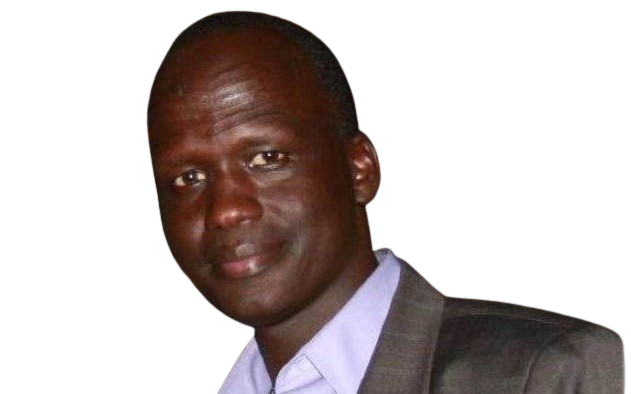President Salva Kiir’s rule rests on one unyielding principle: tribal supremacy. Despite frequent denials by Kiir’s regime and the notorious Jieng Council of Elders (JCE), the reality of ethnic politics is undeniable. Appointments, military hierarchies, and resource distribution overwhelmingly favor one tribal group. The JCE disgracefully believes that power belongs to the Dinka.
This ideology has systematically undermined the promise of a democratic South Sudan. Political, military, and economic authority are concentrated within the Dinka, while others are sidelined from key appointments, resource access, and security structures. The state, meant to unify a fragile nation, has instead become a tool of exclusion. Advancement is dictated not by competence or citizenship, but by ethnic loyalty.
Rather than fostering a shared national identity, Kiir’s governance has deepened divisions, embedding fear, tribalism, mistrust, and violence into everyday life. While historical conflicts and civil war legacies contribute to these dynamics, Kiir’s leadership has amplified them, leaving ethnic favoritism woven into the very fabric of governance.
If a government exists to serve all its citizens, how can favoring one ethnic group over everyone else be anything but a betrayal of the nation itself?
One President, One Tribe
From the moment South Sudan gained independence, Kiir’s leadership has been closely tied to his Dinka identity. Key positions across government institutions, especially in finance, the military, and the security sector, have been overwhelmingly filled by Dinka officials, leaving other ethnic groups marginalized.
Regional governorships, ministerial appointments, and military commands often favor those with proven loyalty to Kiir and the Dinka elite, making political inclusion nearly impossible for non-Dinka leaders. This concentration of authority not only reinforces ethnic dominance but also shapes decision-making at national, state, and county levels, effectively transforming the presidency into a mechanism for ethnic consolidation rather than a unifying institution.
Can a presidency monopolized by one tribe ever claim to represent a nation rather than a personal fiefdom?
One Loyalty, One Rule
Beneath the surface of South Sudan’s government lies a sycophantic system where loyalty to Kiir and the Dinka elite determines who thrives and who is subjugated. In the Kiir–JCE-run regime, ethnic alignment often takes precedence over merit, experience, and citizenship.
This system dictates access to state contracts, development funds, and government hiring or promotions. Non-Dinka officials, even those with extensive expertise, are systematically sidelined, leaving critical positions vacant or filled with less qualified allies.
This loyalty-based governance extends beyond politics into the economy and security sectors, entrenching a cycle in which personal and ethnic allegiance overshadows the nation’s needs. By prioritizing loyalty over competence, Kiir has institutionalized exclusion, making political survival contingent on ethnic identification rather than performance or citizenship.
When tribal loyalty outweighs skill and citizenship, is this governance, or the deliberate sabotage of the state’s survival?
One Fear, One Divide
The consequences of this ethnically centered governance are felt across South Sudan, where fear and mistrust have become daily realities. Communities outside the Dinka-dominated government face systemic demotion and marginalization, fueling resentment and deepening ethnic tensions.
Some continue to deny this reality, insisting that tribalism does not exist within Kiir’s government. Yet this denial is indefensible. Those who persist in it are simply refusing to face the truth. The regime has deliberately torn the nation’s social fabric, as tribalism increasingly dictates access to employment, education, and healthcare.
National identity is weakened, and the promise of a unified South Sudan is fading into fantasy. What emerges is a cycle in which exclusion breeds fear, fear fuels division, and division perpetuates instability, leaving the nation trapped in a persistent state of fragility and conflict. Any reasonable South Sudanese knows the country has lost its direction under Kiir.
If your policies inevitably produce fear, division, and violence, how can you still claim to protect or lead the country?
Ultimately, Salva Kiir’s leadership, anchored in the principle of Dinka supremacy, has transformed South Sudan’s state institutions into instruments of exclusion rather than vehicles of national unity. The intertwining of the presidency with one tribe, the prioritization of loyalty over merit, and the resulting climate of fear and division reveal a governance system that systematically marginalizes vast portions of the population.
This consolidation of power may have secured short-term control for Kiir and his allies, but it erodes hope for democratic reform, weakens social cohesion, and perpetuates violence and mistrust. For South Sudan to fulfill the promise of independence, Kiir and the JCE must move beyond ethnic favoritism, embrace peace, and build institutions that prioritize competence, citizenship, and inclusion.
Until then, the cycle of exclusion, loyalty, and fear will continue to define the nation’s political and social reality. This will leave generations of South Sudanese trapped in uncertainty and division.
The writer, Duop Chak Wuol, is an analyst, critical writer, and former editor-in-chief of the South Sudan News Agency. He is a graduate of the University of Colorado and focuses on geopolitics, security, and social issues in South Sudan and the broader East African region. His work has appeared in leading regional and international outlets, including AllAfrica, Radio Tamazuj, The Independent (Uganda), The Arab Weekly, The Standard (Kenya), The Chronicle (Ghana), Addis Standard (Ethiopia), and Sudan Tribune. In August 2017, the Ethiopian Broadcasting Corporation highlighted his article on Prime Minister Meles Zenawi’s role in Ethiopia’s economic transformation. He currently focuses on emerging security dynamics, including tensions over the Nile waters and foreign involvement in conflicts in South Sudan and Sudan. He can be reached at duop282@gmail.com.
The views expressed in ‘opinion’ articles published by Radio Tamazuj are solely those of the writer. The veracity of any claims made is the responsibility of the author, not Radio Tamazuj.




